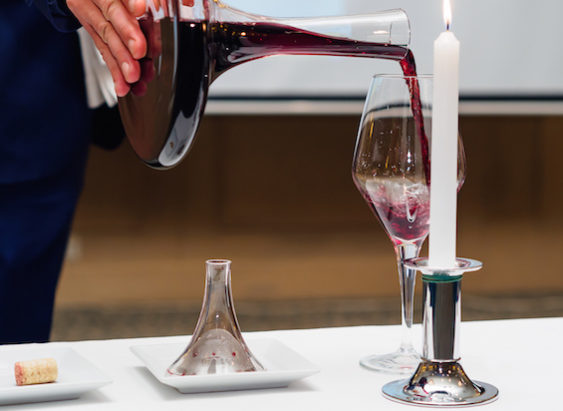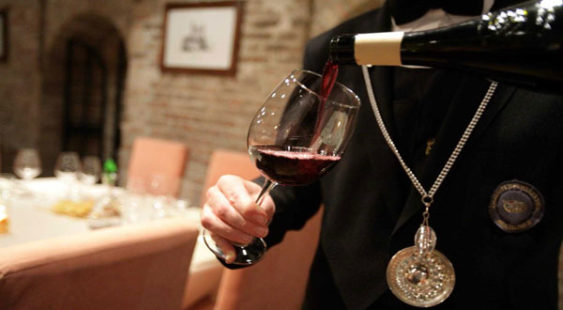“Sommelier.” The word conjures images of imperious, tuxedoed gentlemen wafting through stuffy dining rooms with the menacing air of a Dementor released from Azkaban for the day, just waiting to make you feel bad about ordering an inexpensive wine from a multi-chapter wine list.
But that’s not really the case any more. As restaurant try to make wine more accessible to their patrons, the folks in charge of wine lists at them tend to be pretty charming, well-informed and down-to-earth.
In the U.S., at least, most of these people aren’t actually sommeliers, but wine enthusiasts and devotees who go by titles like “wine director” and “beverage manager.” But some are in fact sommeliers, and yes, that still means something.

It takes a lot of hard work and time to become an actual sommelier.
Among the organizations that can designate sommeliers, the international gold standard is the Court of Master Sommeliers, which was founded in the U.K. in the 1960s, though an American branch opened in the 1970s. Let’s just talk about that one for now.
The first level is a two-day Introductory Sommelier course on winemaking, the world’s wine regions, wine-tasting, wine-food pairings, wine service, and what the Court calls, “importance of social skills.” Presumably, this does not mean shaming diners into purchasing arcane bottles. Then candidates must take and pass an exam on the third day.
The next level is Certified Sommelier, and this requires passing a full-day examination with 40 multiple-choice and short-answer questions, a blind taste test (where you have to expound on things like variety, region and vintage) and a practical service exam.
Now we come to the Advanced Sommelier level. This is for service industry veterans looking to take their skill set (and resumés to the next level). It involves a five-day program, two-and-a-half of which are taken up by exams. It’s like the Bar Exam of wine. There’s a written section with 24 multiple-choice questions and 60 short-answer questions, a practical blind tasting of six wines in 25 minutes and a practical service test with all kinds of obstacles thrown at you. And you have to pass all three, or take the whole thing over again.

Becoming a sommelier means more than getting just a nifty pin. Image source: North American Sommelier.
Finally, and this is where the pantheon of wine gods is forged in flames hotter than those to used to shape the finest Riedel crystal…or something like that…is Master Sommelier. Since the first exam at this level was held in 1969, only 200 or so people in the world have heard the title of Master Sommelier. Let me repeat that. In the 47 years since the title Master Sommelier has existed, only 200 people in the entire world have qualified.
So what does it take? First, you’ve got to pass all the other levels with flying colors, and you have to be invited to attempt the qualification examination. The test itself is a lot like that for Master Sommelier, but more rigorous, with more surprises and with a higher level of detail expected from the candidate. That’s the case both in terms of service quality during the practical portions of the exams, as well as in the ability to expound on any wine-related topic from the Bordeaux classification system to the perfect wine pairing for a specific (and likely very obscure) dessert. If you do pass, you join a very rarefied club. Oh, and you get to put the letters MS after your name on wine lists, cards and other foodie-related things.
So if you meet a Master Sommelier, it’s a great opportunity to pick a true expert’s brain about what you might like to drink, what new things you can try, and just general wine knowledge.
That said, the folks pursuing careers in wine outside these regimented institutions are also likely to demonstrate an impressive amount of expertise. And the bottom line is, remember that a sommelier/wine director/beverage manager is there to help you choose something to drink that you’ll like. For more on that, stay tuned for a future post on what to ask a sommelier so you get the wine you want. Until then, if you want to learn more about what sommeliers do and how hard it is to qualify for the higher levels, check out the film SOMM.

